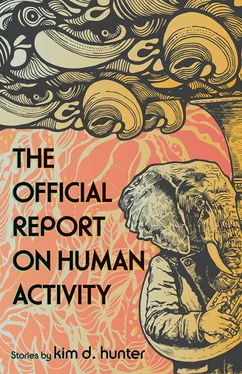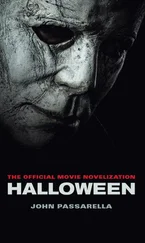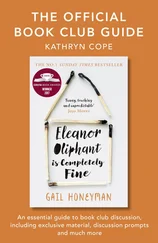* * *
Prison was where Nat had learned a lot of things, including the details of slavery in the US. Discovering that had been like discovering the name, cause, and details of a low-grade fever he’d inherited and had all his life. Being of African descent, the subject was one he’d heard mentioned since he was a child. It was made most clear to him when his seventh or eighth grade class actually had the same teacher for six consecutive months in what he now realized was a history class (though he couldn’t recall the official name).
As with most of their teachers, the class was desperate to know what she did for a living outside of the classroom, and how and if they could learn whatever she knew that earned her money. They saw that as the most pragmatic use of their time, though few of them had any idea what the word pragmatic meant.
The woman had been trained as a musician. She claimed to play a type of music where only some of it was planned or written down. The most important parts were made up by the musicians based on how well they listened to one another and on their personalities and life experiences. This seemed funny and crazy to him and his classmates. Music, like writing and movies, was mostly the work of machines. None of them had heard of any of the people the woman said were her role models. Some thought she was making a joke, perhaps even making fun of them even after she snuck her instrument, a “trumpet,” into the classroom. It had three moving parts on it she called valves. She stuck something into the opening (she called it the “bell”) of the thing where the sound came out so that it wouldn’t be so loud.
He could not recall the name of anything she played, but whenever he remembered her playing, whatever room he was in dissolved with the sound. He remembered how he couldn’t wait for the next note but felt that he knew what was coming. The experience and what the woman had told the class about it split his head open. He thought what he heard was something dark that she alone had created, something that could only be created alone. At the same time, he could not imagine that what she played had not been touched and built up by many people before her. It seemed impossible for one person to have created what felt like a huge building, a skyscraper of sound. It seemed equally unlikely that it ever occupied space where they were, a dim low ceiling of a room, in a building where the hallways had even less light and the only movement allowed was from room to room. The sound she made with her eyes closed was its own light.
A mere few days after he’d experienced the music, it troubled him that he had no idea how such people could have existed in the numbers necessary to create the sound his teacher had played for them. Who could these now dead musicians have been? Almost nothing he’d been taught or had screened over the years supported what the woman, teacher, musician had said or done. It left him skeptical of his own experience.
It wasn’t until years later that Nat realized how deep and true the woman’s lessons had been. He still had tattered “magazines” of real paper she’d given him. She’d handed them to him with a sad, pleading smile.
“I hope you can give these a good home,” she’d said one day after school.
She couldn’t tell him it was the last time he’d see her. She’d learned her sleep unit had been probed and it would not be wise for her to return to it.
The magazines had articles about her heroes—Billie Holiday, Pops Armstrong, Bird, Duke, Miles, Sarah, Mingus, Sun Ra, Cecil, on and on. There was one, Max Roach, who had a group of songs that were all linked together by an idea, the enslavement of people of African descent in the US by primarily wealthy white people in Europe and the Americas, and the aftermath of that enslavement. Strangely, the work never mentioned white people as such. Clearly, the overseers and slaveowners had been white. But that word didn’t surface. The authors assumed their audience had a modicum of knowledge about who had dragged whom in chains across the ocean in the bottoms of rat-infested, corpse-riddled boats.
Nat noticed that a lot while he was looking up stuff about the Max Roach record. If you didn’t do the research—and why would you?—it seemed that the racism used to excuse slavery was a thing that just happened, like a disease that afflicted you most likely if you had dark skin, and though the phrase “free labor” was prevalent throughout the various texts, the serious economic drivers and outcomes were rarely probed in depth. You could almost conclude it was an affliction with no human cause.
When Nat’s research on the Max Roach record corroborated what the teacher had said about slavery, many things fell into place. He could see or at least imagine a vague outline of the group of people needed to create music that could drive everything else from the mind, music whose foundation was a cathartic shout—“make me wanna holla” one text proclaimed—wrapped in a moan.
Jazz became an obsession, albeit a latent one. It took him a while to realize it wasn’t exactly safe to discuss his findings in public. Fortunately, the police didn’t frequent his neck of the woods, or they had much bigger fish to fry than subversive cultural material. He exhausted video references for the music pretty quickly, and though his curiosity was great, his need to find a way to make a living was greater.
One day, he began toying with the bizarre idea that he could earn money playing music in drug emporiums. It would be a way to directly engage the roots of jazz, the antecedent blues. The police rarely showed up at these places. The patrons were engaged in legal activity and were often dead to the world in any event.
He found the plans for a guitar at some underground site with temporary implants that seemed barely clean and cajoled some gangster printer into making the instrument. Why a guitar? It could play chords as well as the usual single notes and yet, unlike a piano, was cheap, portable, and low maintenance, and, unlike a violin was easier to play and keep tuned. It could play jazz and it could play popular music. He’d seen lots of pop musicians from the old days playing guitar even as the video avails were dwindling. He’d also seen pictures of a player named Charlie Christian, a guitarist. He’d never heard Christian’s playing, but imagined it was different than the wild gyrations and feedback he screened from the pop musicians.
Nat got a job running the cleaning machines at a particularly grungy emporium called the Veiled Woman. He chose it because even with a lot of people talking all at once, the place sounded quiet. It had obviously been used for something else at some point in time. It was run by a guy who always wore the same greasy blue jacket with the initials LJ on the front. Though all the “clients” called him LJ, he insisted Nat call him “Proprietor.”
The Proprietor’s machines sat on a wide raised part of the floor. Nat thought this was unique and clever, a good way to keep an eye on what was going on in the tattered seats that faced the raised area. The large area that overhung the seats was a total mystery, as were the seats in small raised pockets off to the side. Why have places where it would be hard for the Proprietor to see what was going on without swiveling around? Who could afford to screen all that area, to say nothing of cleaning it?
The Proprietor just chuckled when Nat brought this up to him one day when things were slow with only about a hundred people in the chairs.
“You’re a good one, you are,” smiled the Proprietor.
Once he had some months of practice under his belt, Nat felt confident enough to ask about playing music for pay in addition to cleaning.
Referring to the drug users, the Proprietor snorted, “They’ve got their own music.”
Читать дальше












